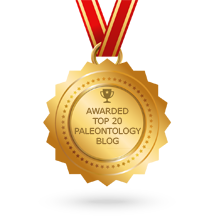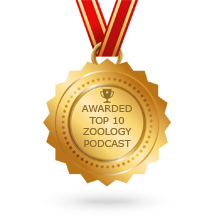My Favourite Question
Or what a difference a word makes.
Words have meaning. That meaning gives them power.
Two essentially identical sentences can have entirely different meanings just by changing a single word. In some cases, that word can change how a person sees the world.
When I was in University, I was fortunate enough to work for the Royal Tyrrell Museum of Palaeontology for three summers.
All three summers, I was with a program called Day Digs. It was a Citizen Science project in which tourists at the museum would pay a small fee, and we would take them out to an Edmontosaurs bone bed. For that fee, we would drive them out to the site, teach them field excavation techniques, and provide lunch and water. The drive out included an interpretive talk about the history of the museum, and geology of the area. The talk continued along the kilometer walk from the van to the quarry, with some more palaeontological background, and a bit of the natural history of the valley.
Once at the quarry, we would prepare the site for the day, and teach the clients how to dig up dinosaurs. Luckily, our bone bed was in a shale deposit, and the sediment could be flaked away with a fingernail, making it a very easy matrix within which we could work. It was fantastic to see the clients pick up an awl or dental tool, and get to do real palaeontological field work within minutes of setting up for the day.
We had another concurrent program called Dig Watch in which the Museum would take a bus full of people out on a guided tour to the Day Digs quarry to watch the other clients dig up the bones.
Whenever I delivered the talk or had a chance to address the Dig Watch, one of my favourite things to do was to show them a bone and ask my favourite question.
I would identify the bone as a limb bone, a rib, or a vertebra, and the type of animal from which it originated. I would then ask the audience my favourite question:
“What was the first thing that had to happen before this bone could become a fossil?”
Invariably, the audience would always answer, “It had to die!”
But they were wrong.
This is where this blog comes full circle. Back to the power of words.
When a person says, “It had to die,” what is the mental image that phrase conjures up? A lifeless carcass along the banks of a river. Roadkill. Little more than the inanimate pile of bones.
The answer I was looking for, yet so few clients ever got right, was “It had to live.”
The difference of a single word can shift paradigms. When one says “This was alive!” a different mental picture forms. That bone is now part of a living creature!
It’s no longer roadkill. It is a majestic 10-15 metre long Edmontonosaurus, standing over 3 metres tall at the hip. It is living, breathing, running, eating, and doing all of the things that living creatures do.
All because I changed a single word.
I still ask that question of people when I talk about palaeontology, and I still love to see that same spark of understanding in their eyes when the “OMG, this was alive!” moment washes over them..
Words have meaning. That meaning gives them power, and the difference of a single word has the power to change how a person sees the world.
 Blog post by Kurt Armbruster. After working for three summers at the Royal Tyrrell Museum, and obtaining his BSc in Geology from the University of Alberta, Kurt moved into the energy industry in Calgary and has explored the Western Canadian Sedimentary Basin for the past 17 years.
Blog post by Kurt Armbruster. After working for three summers at the Royal Tyrrell Museum, and obtaining his BSc in Geology from the University of Alberta, Kurt moved into the energy industry in Calgary and has explored the Western Canadian Sedimentary Basin for the past 17 years.
Originally posted here.





















